8 Tips for More Sustainable Travel in 2025
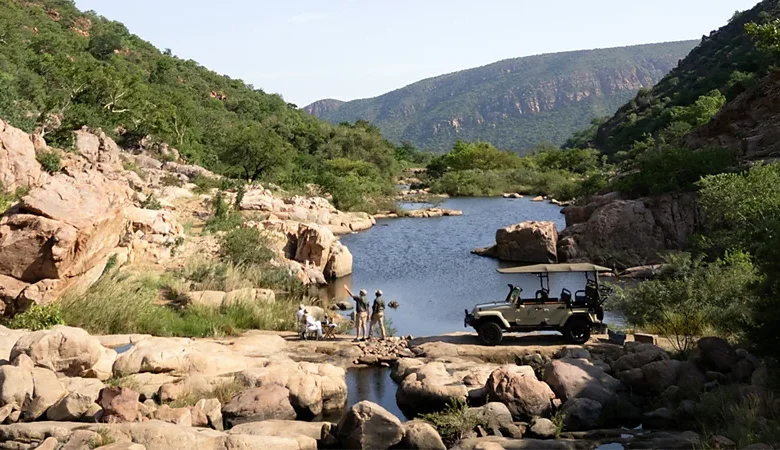
You’re ready to book your next holiday, and you’re aware of the importance of minimising your travel footprint. But where do you begin?
If you’re stumped, you’re not alone. A new Booking.com report found sustainability is important to 84% of global travellers. But while the desire to travel greener is strong, the path to eco-tourism is unclear for many. A Trip.com study found that nearly half of travellers are confused about what sustainable travel actually means, while a 2025 World Travel & Tourism Council report revealed that cost is a major barrier.
With global tourism bouncing back and environmental pressures intensifying, 2025 is a crucial year to rethink how we travel. Here are some simple, practical ways to make more impactful travel choices this year – without sacrificing joy or comfort on the road.
1. Choose trips that give back
As you plan your holidays for 2025 and beyond, experts recommend asking yourself whether you want to be a passive tourist or a visitor who makes a positive impact on the destination. A regenerative-focused trip could involve hands-on conservation at an Ecuadorian ecolodge or choosing an Australian hiking experience helping to revive Aboriginal culture. Fiji’s new Loloma Hour encourages travellers to dedicate at least one hour of their stay to a positive environmental, cultural or social impact activity, while Hawaii’s Mālama experiences encourage visitors to give back to the environment and local communities through habitat restoration, beach cleanups and more.
“We must do better than just sustain travel,” said David Leventhal, eco-hotel owner and co-founder of Regenerative Travel, a leading provider of educational courses aimed at transforming the travel industry into a force for positive change. “We must reverse damage, and regenerate working at a whole systems level to integrate people and planet better.”
2. Think beyond the environment
In 2025, travellers are increasingly aware of the social and cultural impacts of tourism, with Booking.com’s 2025 Travel & Sustainability Report showing for the first time that more than half of global travellers are aware of tourism’s impact on local communities as well as the environment. With overtourism protests – which are already ramping up in 2025 – and unaffordable housing in popular destinations, there’s a growing call to be more mindful about how, when and where we travel.
Thoughtful Travel
Want to travel better? Thoughtful Travel is a series on the ways people behave while away, from ethics to etiquette and more.
“That’s not to say that the environmental elements of sustainable travel are less important – reducing carbon emissions and plastic are as important as ever,” says Dr Susanne Becken, professor of sustainable tourism at Australia’s Griffith University, “but the growth of tourism is putting more and more pressure on communities to a point where some tourism hotspots don’t want to engage with it anymore.”
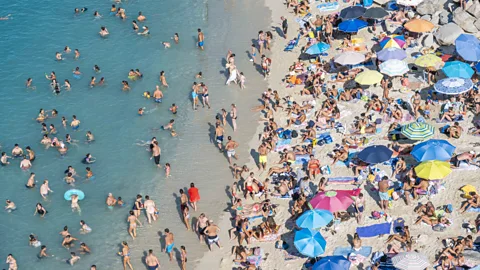 Getty Images
Getty ImagesSteering clear of popular destinations at peak times, being more respectful of local cultures and people, hiring local and Indigenous guides and purchasing more mindfully – from accommodation to souvenirs – can all help to reduce pressure on communities. “Remember that the destination you are visiting is someone’s home,” says Becken.
Looking for immersive, community-based travel? Nepal’s Community Homestay Network has launched three new “community circuits” for 2025, including an itinerary traversing little-visited eastern Nepal; while a new Intrepid Travel trip offers an opportunity to engage with Indigenous elders on a journey to Colombia’s “Lost City”. From visiting a Thai island that has taken sustainability into its own hands to experiencing life in a groundbreaking Swedish town, there are now countless opportunities to visit communities in responsible and regenerative ways.
3. Hold hotels to higher standards
Hotels and other holiday accommodations contribute a large proportion of the CO2 emitted by the tourism sector – but better options are emerging. The world’s first carbon-positive hotel, Populus, opened in the US in 2024; and IHG launched its first branded net-zero hotel in the UK in March 2025, voco Zeal Exeter Science Park.
In South Africa, Few & Far Luvhondo, which opened in January 2025, is among an increasing number of safari lodges prioritising sustainable innovation and eco-tourism. This zero-waste, renewable energy-powered lodge is working to rewild 50,000 hectares of highly degraded land in the Soutpansberg mountains – and even has Africa’s first solar-powered cable-car experience.
What is sustainable travel?
Sustainable travel is ultimately about minimising harm to the places we visit and the people who live there and maximising the benefits for everyone involved. It shares many of the same principles as eco-tourism, but sustainable travel is broader, encompassing travel beyond natural areas. Touted as the new paradigm of sustainable travel, regenerative tourism also shares the fundamental principles of sustainable tourism, with an emphasis on leaving destinations in a better state than they were found.
But you don’t need a luxury safari lodge budget to make more sustainable accommodation choices. A network of UK hiking “hotels” offers free, minimal-impact stays, while Earthships in the US offer unique net-zero accommodation. In Europe, social impact-driven affordable accommodation provider The Social Hub opened a new hotel in Rome in March 2025, with another due to open in Porto this year.
Becken recommends checking for international certification (like B Corp, EarthCheck, Green Globe and Green Key), which indicate a company is committed to energy efficiency and mindful consumption, and cares about how its people are treated. In the absence of certification, which can be financially challenging for small businesses to obtain, check the property’s website for a meaningful sustainability policy encompassing environmental and social initiatives, or contact them directly to ask. The same approach can be taken with tour operators.
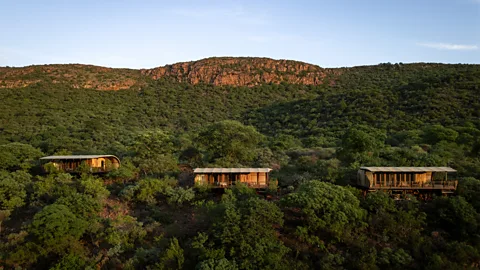 Few & Far Luvhondo
Few & Far Luvhondo4. Consider the journey as well as the destination
Many destinations are making it easier for travellers to minimise their impact when they arrive, via initiatives like zero-waste dining, electric safaris – or even decarbonising their entire visitor economies.
But while destinations are getting greener, getting there often isn’t. Air travel remains one of the most carbon-intensive parts of tourism, and Becken notes that “sustainable” aviation fuels alone cannot solve aviation’s soaring emissions.
Three questions to ask your hotel before booking:
• Does it have an internationally-recognised sustainability certification and/or a comprehensive sustainability policy, and how is its progress monitored?
• How does the hotel positively impact its employees and the local community in the long-term?
• What meaningful steps are they taking to eliminate waste and reach net-zero emissions, or better?
In good news for rail travel enthusiasts, there are a slew of new opportunities in 2025 to take a memorable – and lower-impact – route to your destination. In Australia, the Indian Pacific has extended its journey from Perth to Sydney to five days with new off-train experiences on each leg; while La Dolce Vita Orient Express, Italy’s first homegrown luxury train, made its inaugural journey from Rome to the Tuscan hill town of Montalcino in April. Expected to be completed in 2025, Portugal’s Evora-to-Elvas route is the first link in a high-speed network that will eventually connect Madrid to Lisbon in three hours; and a renewed version of the legendary Orient Express carrying passengers between Istanbul and Paris, is due to roll in 2026, along with a new Budapest-to-Belgrade line.
When you do need to fly, choose low-emissions flights with the help of booking platforms like Google Flights, which displays the average emissions for each route. Booking economy seats and prioritising direct flights also reduces emissions. Can’t stand cabin wastage? Air New Zealand, Alaska Airlines, LATAM and SAS are just a few airlines that have taken meaningful steps to reduce single-use plastic on flights. And while carbon-offsetting your flights through verified schemes does not undo the damage, many experts agree it’s better than doing nothing at all.
5. Be curious and connect deeply
Anthony Bourdain famously said that “travel is not a reward for working, it is education for living”. It’s a great philosophy for sustainable travel – and one of the most sustainable ways to learn more about the place you are visiting is to book an Indigenous-led tour.
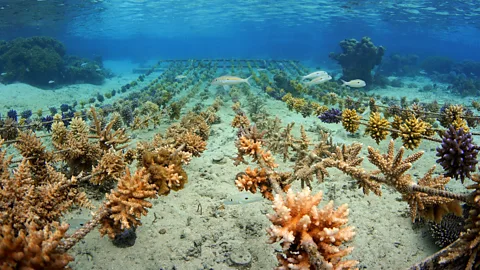 Getty Images
Getty ImagesRecord demand for First Nations experiences in Australia has coincided with the launch of new tours for 2025, including a Byron Bay storytelling walk that offers a powerful way to connect with one of Australia’s most popular coastal holiday destinations. Native and First Nation tourism is also booming in North America, with the American Indian Alaska Native Tourism Association naming Oklahoma’s Chickasaw Cultural Center, which offers guided tours and a daily stomp dance demonstration, as the best cultural heritage experience for 2025
Meanwhile, citizen science and hands-on conservation activities also allow travellers to engage with destinations on a deeper level. New for 2025, Natural Habitat Adventures’ Kenya Rhino Conservation Safari includes behind-the-scenes talks with conservationists in three leading private conservancies; while Aurora Expeditions, the world’s first major expedition cruise line to gain B Corp certification, recently added Eyesea, a platform designed to map global pollution and maritime hazards, to its robust citizen science programme.
6. Harness the apps
Calculating the carbon footprint of your travels is a great way to track your impact (try the University of California, Berkeley’s CoolClimate Calculator). But there are many other ways in which apps can help. Find new ways to immerse in nature with AllTrails, which features more than 450,000 trails across the globe including its top 25 trails to explore in 2025; and discover plant-based dining options around the world with Happy Cow, which named London as its number one vegan-friendly city for 2025. Connecting travellers with more than 800,000 drinking water sources worldwide, Droply makes it easy to avoid plastic water bottles.
And while social media has often been blamed for contributing to overtourism and other issues, research shows it can also be used as a force for good to share positive sustainable travel experiences. Did you enjoy a visit to Vilnius, the European Green Capital for 2025? Share it with your followers and inspire others to go.
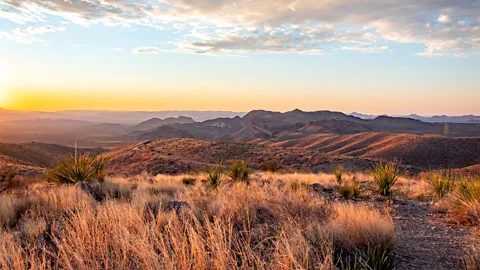 Getty Images
Getty Images7. Learn to spot greenwashing
Deceptive sustainability claims – known as greenwashing – have become increasingly prevalent in the tourism industry as businesses try to capitalise on growing demand for eco-tourism. In 2024, major airlines including Air France, Etihad, Lufthansa and Qantas were accused of making misleading sustainability claims, and Booking.com dropped its Travel Sustainable programme after regulatory backlash.
“New legislation adopted by Europe [called the Green Claims Directive] will make it much harder for companies to greenwash, and I think we will see that roll out globally,” says Becken. Until then, it’s on consumers to stay sharp. Use resources like Sustainable Travel International’s guide to avoiding greenwashing in tourism – and “don’t underestimate the value of guest reviews”, says Leventhal. “Platforms like Google offer honest insights into whether a property or tourism experience truly lives up to its promises.”
8. Leverage your privilege
Recognising the privilege to travel freely, as only a small percentage of the world’s population is able to do, is the first step in making travel a force for good. Privilege gives travellers the power to spend our travel money on experiences that are good for people and the planet, from choosing animal-friendly experiences to ensuring activities we participate in keep vulnerable children safe and don’t exploit culture or communities. It can be argued that privilege doesn’t only come with power, but also a responsibly to pay it forward.
Source: bbc.com





